Week 12
Reading
This week, the students worked on a reading strategy we call, “Use the Clues!” This strategy has them hunt for context clues around an unknown word to determine the word’s meaning. The students learned that the clues can be a nearby synonym (word that means the same) or antonym (word that means the opposite.) The students also learned to look for explanations or examples around the unknown word. Using contexts clues takes a lot of practice but it enhances the reading experience and helps the reader learn new words! When your child reads at home, you can ask them about a challenging word and ask them how they figured it out.
Below some of our readers are hunting for challenging words and using the clues in the text to determine their meaning:
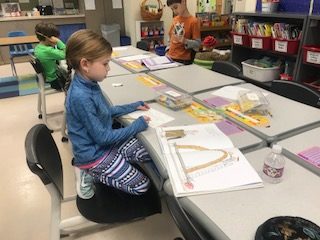
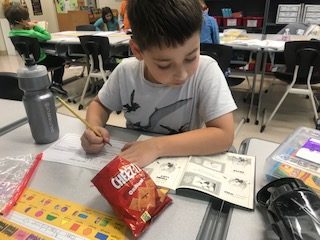
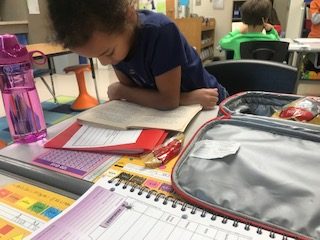
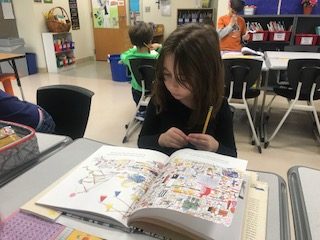
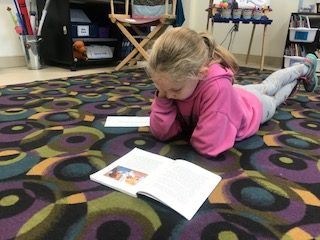
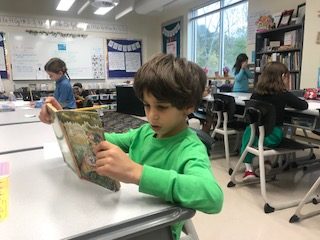
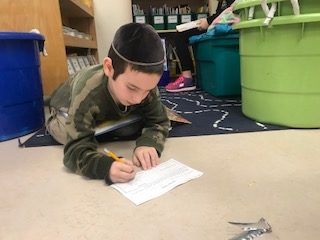
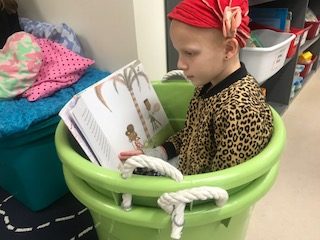
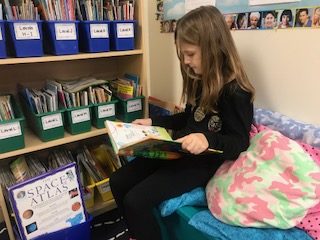
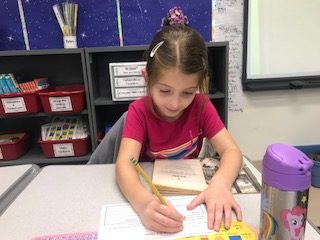
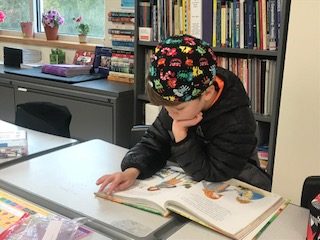
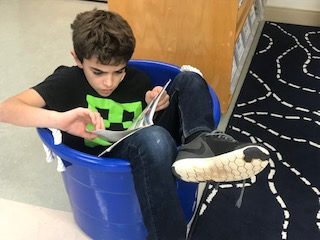
Vocabulary
This week the students studied the following words: Arrive, clear, enormous, exactly, float, midnight, rainbow, snowstorm, weekend, and whisper. Next week, the students will sort these words by their parts of speech to see which words are nouns, verbs, adjectives, or adverbs. We will also review the past two units and study synonyms and antonyms.
It is hard work learning so many new words, but our students are up to the challenge!
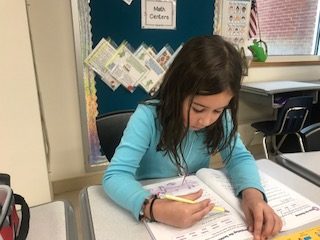
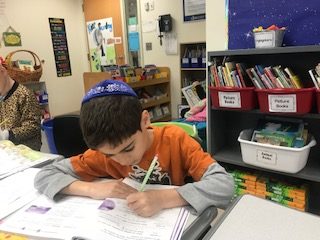
Writing
We are deep into our second writing unit on organization and we will complete it next week. The students have learned that stories must contain a beginning, middle, and end. It is helpful to create a plan for the story’s structure before you begin writing. This week, the students learned how to write strong leads that grab their readers’ attention and make their readers ask questions so that they want to keep reading. We looked at strong leads in books like Ramona Quimby, Age 8, The Mouse and the Motorcycle, Because of Winn Dixie, and more. Next week, we will study how to write strong endings.
Spelling
This week, the students studied words that contain the short “e” and short “o” sounds. I am encouraging the students to apply these skills in their writing. Next week, the students will work on words containing the short “u” sound and where “y” acts as a vowel. These are words like hunch and totally.
Math
The students completed their third math unit this week. Our next unit will cover parts and totals number stories (where the students add two thing together to get a total), temperature changes, adding and subtracting money, measuring lengths with a measuring tape, and elapsed time.
Project Based Learning- Social Studies
Our new P.B.L. question is- How are goods and services brought to me? To answer this question the students have researched the difference between goods and services. Both cost money, but goods can be held in your hand, while paying for a service means someone is doing something for you (like cutting your hair or fixing your car.) We watched the process of how goods, like macaroni and jellybeans are made in factories and we talked about how this process is relying more heavily on technology, like robots. Today, we began brainstorming ways that goods and services get to our stores. Next week, the students will research the shipping process, learn about importing and exporting goods, and research the ways goods will come to us in the future. After Thanksgiving, the students will learn about economics and how to be smart shoppers. They will study wants vs. needs, producers vs. consumers, and saving vs. spending.